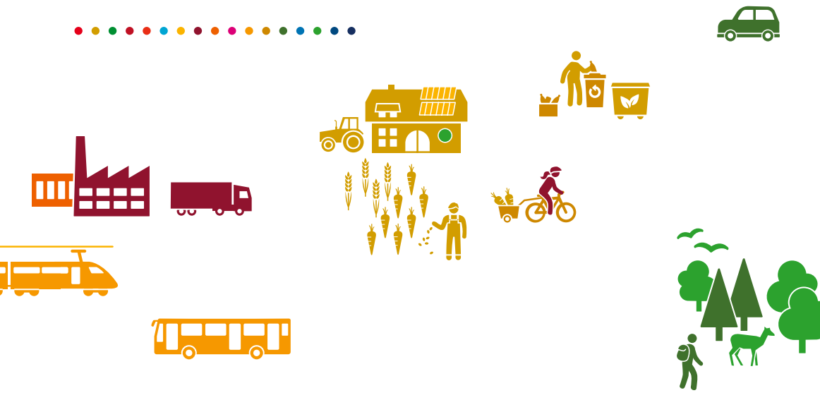We provide the best value to our customers by continously refining our
Switzerland 2030 SDGs Action Plan

The Federal Council adopted the 2030 Sustainable Development Strategy and an Action Plan for the period 2021–2023. The strategy sets priorities for the implementation of the 2030 Agenda for Sustainable Development.
The 2030 Agenda for Sustainable Development (2030 Agenda) is the frame of reference adopted by the international community for tackling the world’s major challenges. All United Nations (UN) member states have made a political commitment to implement the 2030 Agenda both nationally and internationally, to achieve the 17 global Sustainable Development Goals it contains by 2030 and to leave no one behind.
The Federal Council actively assumes this commitment both nationally and internationally and accepts its responsibility towards present and future generations. In this 2030 Sustainable Development Strategy the Council lays out the manner in which it intends to do this over the next ten years.
Switzerland is well advanced with respect to some of the goals of the 2030 Agenda. It has a high-quality education system and a good healthcare sector, for example. Yet more still needs to be done in some fields where special action and coordination between policy areas is required at federal level.
With regard to these priority topics, the Federal Council uses this strategy to set targets for Switzerland as well as strategic domestic and foreign policy directions for federal policy.
- Sustainable consumption and sustainable production: Promoting and facilitating sustainable consumption patterns, ensuring prosperity and well-being while protecting natural resources, furthering transformation towards sustainable food systems in Switzerland and abroad, strengthening corporate responsibility in Switzerland and internationally.
- Climate, energy and biodiversity: Reducing greenhouse gas emissions and managing climate-related impacts, reducing energy consumption, using energy more efficiently and expanding renewable energies, preserving, sustainably using, promoting and regenerating biodiversity.
- Equal opportunities and social cohesion: Promoting individual self-determination, ensuring social cohesion, guaranteeing real equality between women and men.